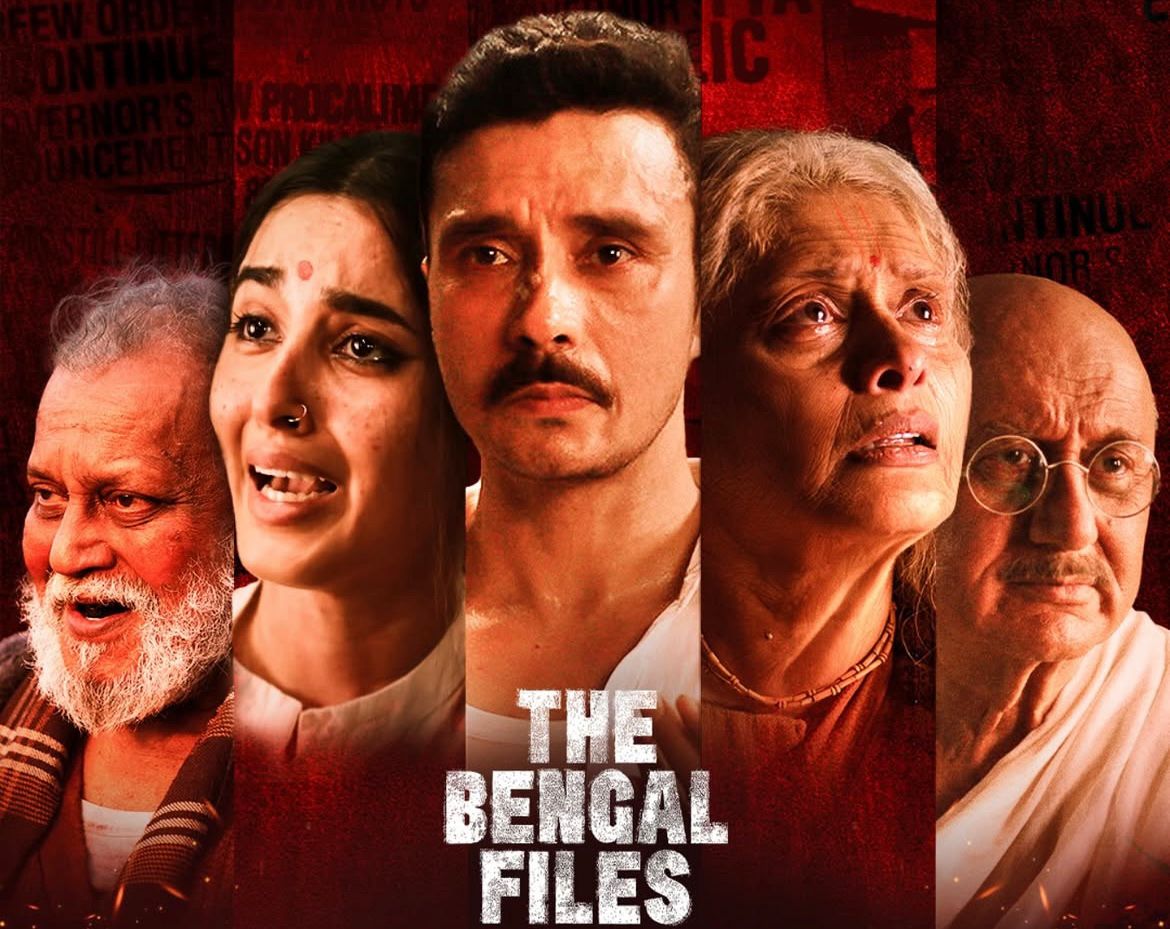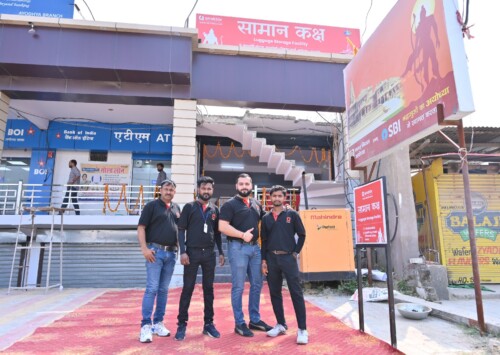‘The Bengal Files’ sparks protests, politics across West Bengal
BJP’s propaganda machine returns with more distortion of history
Vivek Agnihotri’s film ‘The Bengal Files’ has ignited a political storm in West Bengal, with protests over its depiction of the 1946 riots. Critics call it divisive propaganda, while BJP defends screenings citing free expression amid rising electoral tensions.
The release of controversial filmmaker Vivek Agnihotri’s latest project, The Bengal Files, has triggered a heated political storm in West Bengal, with critics accusing the film of distorting history while attempting to deepen religious divisions.
The movie dramatises the 1946 Calcutta riots, which Agnihotri has described as a “Hindu genocide.” Its promotion campaign and narrative have been sharply criticised by the Trinamool Congress (TMC), the ruling party in West Bengal, which accuses the director of pushing the agenda of right-wing nationalists, notably the Bharatiya Janata Party, which has been desperately trying to bag the state over the past decade.
Agnihotri’ films, including The Tashkent Files (2019) and The Kashmir Files (2022), have sparked controversy. Critics and TMC accuse him of distorting history and fuelling communal hatred through these films. They argue his movies dramatise sensitive events, inflaming divisions rather than presenting accurate history.
TMC says that as in his previous films, even in The Bengal Files, Agnihotri has deliberately revived painful communal memories, while the BJP argues that blocking or criticising the movie amounts to an attack on freedom of expression.
The dispute began in March 2025, months before the release, when Agnihotri announced the film as a ‘truth-telling project’ that would shed light on the suffering of Hindus in Bengal before Independence. Promotional events quickly took on a political colour, with BJP leaders openly endorsing the film and terming it a ‘wake-up call’. The ruling TMC, however, called out what they described as ‘a crude attempt to communalise Bengal’s history in the middle of an election cycle’.
Soon enough, the controversy escalated beyond typical political sparring. Several historians accused the filmmaker of selective storytelling, while social activists in Kolkata questioned whether such a portrayal fits within a state that is home to diverse religious communities with a fragile present-day political fabric.
On August 15, as screenings began across parts of Bengal, protests broke out in Kolkata and Howrah, with student organisations and civil society groups demanding the film be pulled down. State police have refused to officially ban it but raised concerns over possible law-and-order tensions. Meanwhile, BJP functionaries are alleging that theatres are being pressured, directly or indirectly, not to run the film in the state.
“This is nothing but an electoral tool disguised as cinema. Agnihotri knows very well which images will stir outrage. The selective portrayal is not about healing wounds, it is about deepening them right before Bengal’s high-stakes polls,” Pallavi Deb, an independent journalist based in Howrah, tells Media India Group.
Residents in Kolkata are divided but wary. Many view this film less as art and more as propaganda.
“We study history critically. The film does not reflect research, it reflects propaganda. Agnihotri is selling a version of history that suits the BJP. The dangerous part is that it can aggressively pit communities against each other,” Ishika Ganguly, a student in Kolkata tells Media India Group.
“I am not against telling forgotten histories. But why is it always framed as Hindu versus Muslim? Bengal’s story is one of both pain and resilience. When a filmmaker ignores that balance, I feel it is less about art and more about dividing people,” Ganguly adds.
“Agnihotri thrives on controversy. He knows the outrage helps market his films. But Bengal is not a laboratory for experiments in hate. People here are tired of being shown as pawns in someone else’s agenda,” Deb adds.
Beyond the box office numbers, this controversy reveals the sharpened political stakes of Bengal. With elections looming, every cultural artifact is being read politically, and The Bengal Files has become a lightning rod. The ruling TMC sees in it the BJP’s strategy to tap into communal memory, while the BJP frames the debate as censorship versus creative freedom.
The Tashkent Files (2019) is about the mysterious death of former Prime Minister Lal Bahadur Shastri. However, many say the film mixes rumours with facts and ignores proven evidence. Critics say it picks only certain events to support its story while ignoring important details that do not fit, making it historically inaccurate.
In The Kashmir Files (2022), Agnihotri shows the fleeing of Kashmiri Pandits as a planned genocide by Muslims. Historians say this exaggerates and wrongly simplifies the complex conflict in Kashmir. The film shortens many years into a shorter timeline and mostly shows Muslims as attackers, which some say increases religious hate. Some families and experts dispute parts of the film, worrying it spreads fear of Muslims falsely.
Even with these criticisms, The Kashmir Files won a National Film Award, showing strong government backing for Agnihotri. This support points to how closely his films match the current government’s views, making the debate about politics and history in Indian movies even stronger.










